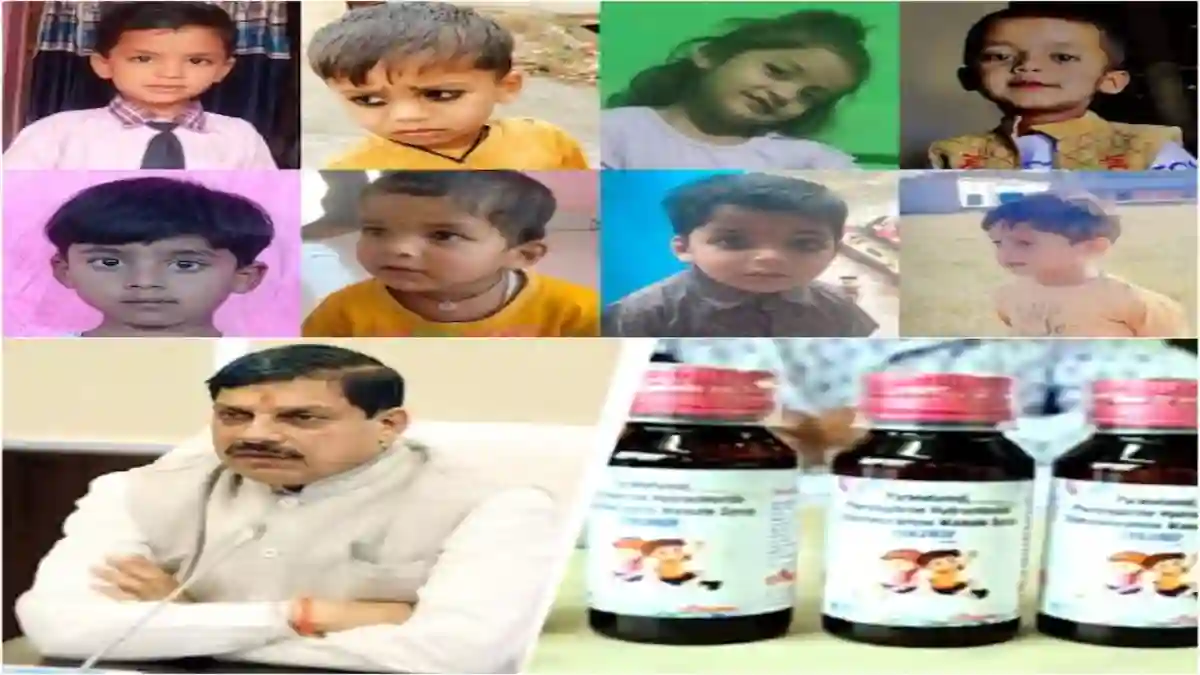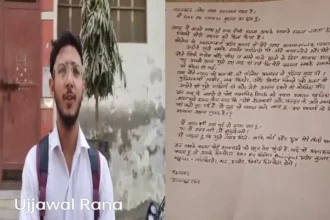
The World Health Organization (WHO) has raised serious concerns after the deaths of at least 21 children in Madhya Pradesh, India were linked to toxic cough syrups contaminated with diethylene glycol (DEG) and ethylene glycol (EG) — chemicals commonly found in antifreeze and brake fluids. The WHO flagged a “regulatory gap” in India’s pharmaceutical oversight and warned of potential export risks despite claims that the products were not officially shipped abroad.
What Led to the Tragedy
The deaths were reported mainly in Madhya Pradesh and Rajasthan, where children under the age of five developed acute kidney failure after consuming Coldrif cough syrup, manufactured by Sresan Pharmaceuticals, a Tamil Nadu based company.
Subsequent laboratory tests confirmed that Coldrif syrup contained 48.6% diethylene glycol, far exceeding safe limits. Two other syrups — Respifresh TR and ReLife — were also found contaminated and immediately recalled by the Central Drugs Standard Control Organisation (CDSCO). Authorities have since halted the production and sale of all medicines produced by Sresan Pharmaceuticals.
WHO’s Findings and Recommendations
In its statement, WHO said the tragedy highlights gaps in India’s medicine regulatory system. The organization emphasized the need for routine screening of pharmaceutical products for DEG and EG contamination, both in raw materials and finished medicines.
Key WHO recommendations include:
- Tracing the source of contamination, particularly whether industrial grade solvents were used.
- Identifying and removing any remaining contaminated stock from the market.
- Strengthening domestic quality checks to prevent similar incidents.
- Monitoring unofficial exports to ensure tainted products do not enter international markets.
The agency also reaffirmed its readiness to assist Indian authorities with investigations and technical support to improve drug safety standards.
Arrest of Sresan Pharmaceuticals’ owner
Following the deaths, G. Ranganathan, 75, owner of Sresan Pharmaceuticals, was arrested from his residence in Kodambakkam, Chennai, by a team of Madhya Pradesh police. He faces charges under the BNS for culpable homicide not amounting to murder, drug adulteration, and violations of the Drugs and Cosmetics Act.
Ranganathan, a pharmacy graduate from Madras Medical College, had been active in the pharmaceutical industry for over four decades and was known for mentoring young entrepreneurs. However, the current findings have led to a total ban on Sresan manufactured medicines in Madhya Pradesh and a statewide recall of all their products.
Government Response
After Tamil Nadu’s Director of Drugs Control confirmed the presence of DEG in Coldrif (Batch No. SR-13), the Madhya Pradesh government imposed a ban on sales, distribution, and stock of all Sresan products. The Food and Drugs Administration (FDA) instructed inspectors to seize existing stocks, collect samples for laboratory testing, and halt further sales.
However, public outrage has grown over the state’s handling of the incident. When questioned, Chief Minister Mohan Yadav’s dismissive remark — “Kal ki baat mat karo, aaj ki baat karo” (don’t talk about yesterday, talk about today) — drew widespread criticism for its insensitivity toward grieving families.
Lessons and Way Forward
This tragedy echoes similar cough syrup poisonings reported in other countries over recent years, underscoring the need for stricter pharmaceutical quality control. The WHO’s warning serves as a reminder that public health safety depends not just on regulation, but on consistent enforcement and transparency in the drug manufacturing process.
As India continues to be a major global supplier of generic medicines, the cough syrup tragedy has reignited questions about regulatory oversight, testing infrastructure, and the ethical responsibility of drug manufacturers. Strengthening these systems is essential to prevent future loss of innocent lives.






